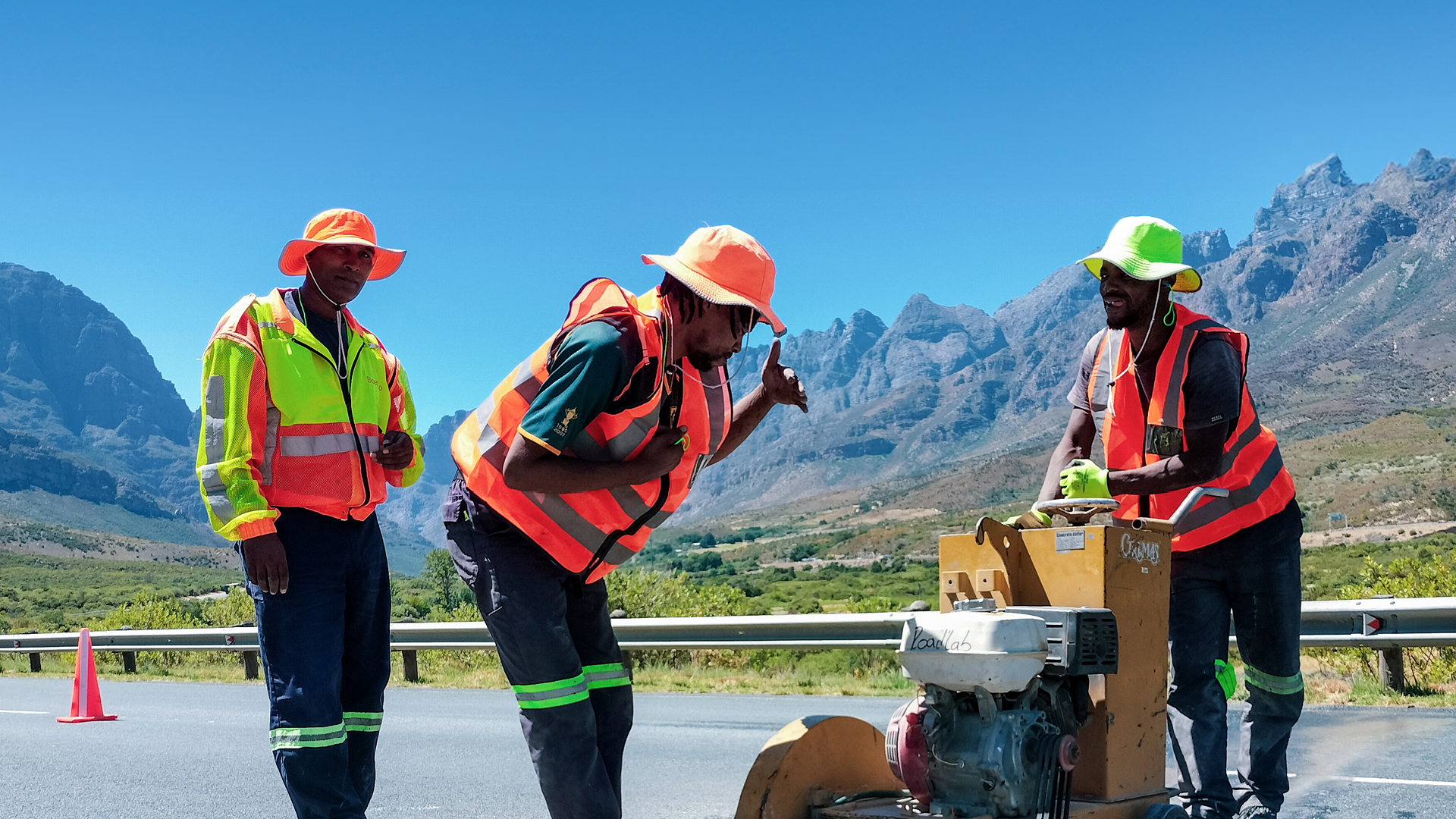OUR PLACE IN
CIVIL CONSTRUCTION
Roadlab is an accomplished supporter of South Africa’s state enterprises, over 400 construction companies and more than 60 consulting firms.

Lower Usuthu Smallholders Irrigation Project II
Eswatini
LUSIPII: Supporting Sugar Cane Farmers in Rural Eswatini
This project leveraged the lower Usuthu river basin to deliver a reliable water supply to sugar cane farmers in rural Eswatini, enabling these smallholder farmers to cultivate their land more efficiently and more sustainably.

Roadlab Technician Mushe Magobi on site in the early days of LUSIP II.
Project Information
Located in the Lower Usuthu River Basin, a vital agricultural area in Eswatini, the Lower Usuthu Smallholders Irrigation Project II addresses the challenges faced by small-scale farmers who have traditionally relied on rain-fed agriculture.
By providing a reliable water supply for irrigation, the project aims to increase agricultural productivity, improve rural livelihoods, and reduce the vulnerability of farmers to climate change.
Roadlab joined the project by establishing a dedicated site laboratory that assessed the suitability of surrounding material for use in the project's construction, most notably in the dam and canal embankments.

The early stages of some canals that became part of LUSIP II.
Construction
The construction of the LUSIP II involved meticulous planning and collaboration between government bodies, international organizations, and local communities.
Dam and Reservoir
A dam was constructed across the Usuthu River to create a reservoir, which serves as a reliable water source for irrigation. The reservoir has a substantial capacity, enabling it to store and regulate water flow during both dry and wet seasons.
Canal Network
A network of canals and distribution channels was established to transport water from the reservoir to the agricultural fields. These canals are strategically designed to maximize water distribution efficiency and minimize losses due to evaporation or leakage.
Irrigation Infrastructure
Alongside the canal network, an extensive irrigation infrastructure was developed, comprising pipelines, pumping stations, and control mechanisms. This infrastructure allows farmers to access water for their fields efficiently and ensures equitable distribution among the smallholder community.
Capacity Building
The project also emphasizes capacity building for smallholder farmers, providing them with training and education on modern irrigation techniques, crop management, and water conservation practices. By equipping farmers with the necessary knowledge and skills, the project promotes a sustainable version of agricultural productivity.
Roadlab performed extensive test pits and soil classifications, provided concrete quality assurance and guided the engineers and construction partners on the G6 material used throughout the infrastructure of LUSIP II.

The functioning dam and reservoir of LUSIP II.
Impact
The Lower Usuthu Smallholders Irrigation Project II has significant implications for the local farming community.
Increased Agricultural Productivity
By providing a dependable water supply, the project enables farmers to practice multiple cropping, extend growing seasons, and diversify their crops. This results in higher yields, increased income, and improved food security.
Poverty Alleviation
Smallholder farmers, who form a significant portion of the rural population, experience enhanced livelihoods and reduced vulnerability through improved agricultural practices and access to water.
Water Resource Management
The project promotes sustainable water management practices by ensuring efficient utilization of water resources. By reducing reliance on rain-fed agriculture and implementing water-saving techniques, it contributes to water conservation and mitigates the impact of climate change.

Progress on some of the canals that today feed water to Eswatini's rural farmers.
Interested in our work?
Reach out to us.




